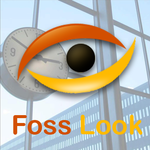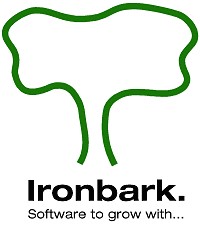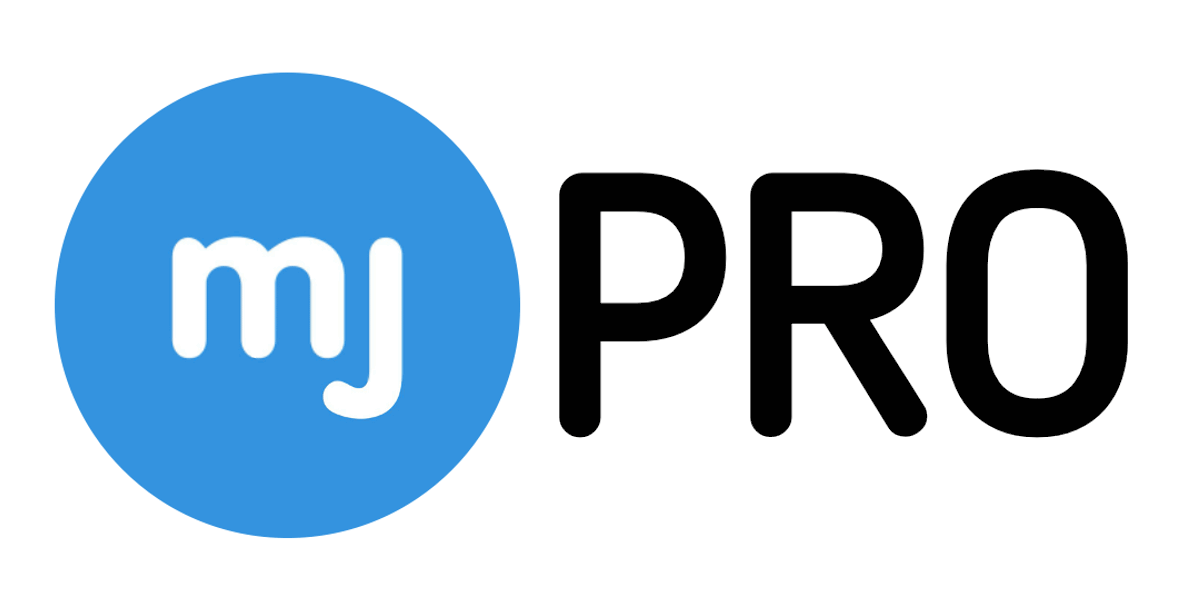Description

FossLook

Ironbark
Comprehensive Overview: FossLook vs Ironbark
FossLook and Ironbark are two distinct products usually involved in enterprise software solutions. Here’s a comprehensive overview of each:
a) Primary Functions and Target Markets
FossLook:
-
Primary Functions: FossLook is a document management and collaboration platform primarily designed to streamline workflows within organizations. It functions as a document management system (DMS), allowing businesses to create, store, share, and manage documents efficiently. Key features often include document storage, version control, access permissions, workflow automation, and integration capabilities with other enterprise systems.
-
Target Markets: FossLook targets mid-sized to large enterprises across various industries that require robust document management solutions. Its user base typically includes sectors like legal, finance, healthcare, and government, where managing large volumes of documentation is critical.
Ironbark:
-
Primary Functions: Ironbark refers to a suite of enterprise resource planning (ERP) solutions aimed at optimizing business operations. An ERP system like Ironbark provides integrated management of core business processes in real-time, facilitated by instant data flow. Key functions include financial management, supply chain operations, customer relationship management, and HR.
-
Target Markets: Ironbark targets diverse industries that require comprehensive ERP solutions to streamline their operations, such as manufacturing, distribution, retail, and supply chain management enterprises. Its clients usually range from small to medium enterprises (SMEs) to large corporations looking for integrated business processes.
b) Market Share and User Base
-
FossLook: As a document management system, FossLook might not be as well-known globally as some larger DMS providers like Box or SharePoint. However, its market share can be significant in niche markets or regions where it is actively promoted and supported. Its user base typically consists of businesses that prioritize streamlined document workflows and require customizable solutions tailored to specific industry needs.
-
Ironbark: In the ERP market, Ironbark may face competition from major players like SAP, Oracle, and Microsoft Dynamics. Generally, it appeals to businesses looking for personalized, scalable solutions that may not find the larger ERP systems as flexible or economical. Ironbark’s market share would largely depend on its competitive pricing, localized support, and industry-specific features that might not be present in larger ERP systems. The user base tends to be those who value these customizable options.
c) Key Differentiating Factors
FossLook:
-
Specialization in Document Management: FossLook’s specialization in document management provides advanced features tailored specifically for handling documentation, which can be more sophisticated compared to the document handling features in a general ERP system.
-
Customization and Flexibility: It offers a high degree of customization for workflows and documentation processes, making it suitable for industries with specific document management needs.
-
Integration Capabilities: It can integrate with various third-party solutions to enhance its functionality and create a seamless working environment.
Ironbark:
-
Comprehensive ERP Solutions: Ironbark ERP solutions cover a broad spectrum of business operations, providing an all-in-one platform for managing an entire organization’s resources and processes.
-
Industry-Specific Modules: Ironbark may offer modules or features specifically tailored to certain industries, which can be a decisive factor for businesses in those sectors.
-
Scalable and Modular: The ability to scale and choose modules according to business size and operational needs allows a flexible approach to enterprise resource management.
In summary, while both FossLook and Ironbark serve enterprise needs, FossLook focuses on document management and is designed for organizations needing robust document processing solutions. In contrast, Ironbark is more generalized towards comprehensive business operation management as an ERP, with specific features and modules targeting industry-specific needs.
Contact Info

Year founded :
Not Available
+1 603-894-6425
Not Available
United States
Not Available

Year founded :
2010
Not Available
Not Available
United Kingdom
Not Available
Feature Similarity Breakdown: FossLook, Ironbark
To provide a detailed comparison between FossLook and Ironbark, we need to explore them in the context of their core functionalities, user interfaces, and unique features. While I don't have specific and updated information about every software in real-time, I can provide a general comparison framework based on typical features found in document management systems like FossLook and enterprise resource planning (ERP) solutions like Ironbark, assuming Ironbark refers to an ERP or a similar type of system.
a) Core Features in Common:
-
Document Management:
- Both platforms likely offer features that aid in the management and organization of documents. FossLook, being a document management system, excels in this area, offering document storage, search, retrieval, versioning, and categorization.
-
Workflow Automation:
- Workflow automation is a common feature to streamline processes. Both FossLook and Ironbark may offer tools to create and manage workflows to automate routine tasks and ensure consistency in operations.
-
User Access Controls:
- These systems typically provide access control features to manage who can view or edit certain documents or data, ensuring security and compliance.
-
Integration Capabilities:
- Both systems might support integration with other tools or systems such as CRM, email clients, and other enterprise applications to enhance their functionality without disrupting existing processes.
b) User Interface Comparison:
-
FossLook:
- FossLook is usually centered around efficient document management and features a user-friendly interface tailored to facilitate easy navigation of documents. It often emphasizes ease of use for non-technical users with a focus on drag-and-drop functionalities and straightforward layout designs.
-
Ironbark:
- If Ironbark is an ERP or similar system, its interface might be more complex owing to the broader range of functionalities it covers, such as finance, human resources, and logistics. The UI may cater more to technical users who need to manage detailed operational aspects, potentially offering customizable dashboards and modules.
c) Unique Features:
-
FossLook:
- Email Integration: FossLook is known for its strong integration with email clients, allowing users to manage emails as part of the document workflow.
- Customization: Often offers robust options to customize document workflow and metadata.
-
Ironbark:
- Industry-Specific Modules: If Ironbark is an ERP tailored for specific industries (like retail, manufacturing, etc.), it might offer specialized modules that cater to industry-specific needs.
- Comprehensive ERP Suite: Ironbark might provide a wider range of functionalities beyond just document management, such as supply chain management, inventory management, or customer relationship management, depending on its industry focus.
In summary, while both FossLook and Ironbark may share some overlapping features, particularly in document management and workflow automation, their primary focuses and user experiences can differ significantly. FossLook would generally cater more towards document-centric environments, while Ironbark, as an ERP system, potentially offers a broader suite of business management features tailored to various operational needs. Unique features in each system stem from their core focus—be it document management or comprehensive enterprise resource planning.
Features

Not Available

Not Available
Best Fit Use Cases: FossLook, Ironbark
FossLook and Ironbark are both software solutions that cater to different business needs and scenarios. Here's a breakdown of their best fit use cases:
a) FossLook
Types of Businesses or Projects:
-
Small to Medium Enterprises (SMEs): FossLook is well-suited for SMEs that require a flexible and affordable document management system (DMS). It's ideal for businesses that need to digitize paper processes and streamline document handling.
-
Industries with Heavy Documentation Needs: Sectors such as legal, healthcare, real estate, and financial services can benefit from FossLook's capabilities in organizing, storing, and retrieving large volumes of documents.
-
Projects Requiring Workflow Automation: Companies that aim to automate routine workflows and improve collaboration among team members can leverage FossLook’s workflow automation features.
-
Customizable Solutions Seekers: Businesses that need tailored document management solutions will find FossLook's customizable environment beneficial, allowing them to adapt the system to specific operational requirements.
Catering to Industry Verticals and Company Sizes:
- Industry Verticals: FossLook is versatile, serving various industries that need robust document management, from medical facilities managing patient records to legal firms handling case files.
- Company Sizes: Primarily targeted at small to medium-size businesses, though it can be scaled for larger enterprises with moderate document management needs.
b) Ironbark
Preferred Scenarios:
-
Retail and Wholesale Distributors: Ironbark is specifically designed for businesses in the retail and wholesale distribution sectors. It helps manage supply chain complexities and enhances inventory management.
-
Companies Seeking ERP Solutions: Organizations needing comprehensive enterprise resource planning (ERP) solutions to integrate various business functions such as finance, HR, sales, and operations will benefit from Ironbark’s offerings.
-
Growth-Oriented Enterprises: Businesses looking to scale operations and improve efficiency through process integration and data-driven decision-making can leverage Ironbark’s robust system.
-
Industries with Inventory and Logistics Handling: Ironbark is a preferred choice for industries that need precise inventory control, logistics management, and detailed reporting capabilities.
Catering to Industry Verticals and Company Sizes:
- Industry Verticals: Particularly strong in verticals such as retail, distribution, and supply chain management, helping these industries optimize operations.
- Company Sizes: Ironbark is suitable for medium to large enterprises that require a scalable ERP solution to support more complex operational demands.
In summary, FossLook is best suited for smaller to medium-sized businesses needing a flexible document management and workflow automation system, whereas Ironbark is ideal for medium to large enterprises, particularly in the retail and distribution industries, that require extensive ERP capabilities. Both solutions cater to distinct operational needs, ensuring businesses across various industries can find a tailored fit for their specific requirements.
Pricing

Pricing Not Available

Pricing Not Available
Metrics History
Metrics History
Comparing undefined across companies
Conclusion & Final Verdict: FossLook vs Ironbark
Conclusion and Final Verdict for FossLook vs. Ironbark
a) Best Overall Value:
When deciding between FossLook and Ironbark, the best overall value depends on the specific needs and priorities of your organization. FossLook offers extensive customization, integration capabilities, and cost-effectiveness, making it an excellent choice for small to medium-sized businesses focused on document management and business process automation. In contrast, Ironbark excels in industries such as manufacturing and distribution with its robust ERP solutions tailored for complex workflows and industry-specific requirements. Therefore, if your needs are more aligned with comprehensive document management and flexibility at an affordable cost, FossLook is likely the better value. If, however, your organization requires industry-specific ERP solutions with a focus on scalability, Ironbark would be the preferable option.
b) Pros and Cons:
FossLook:
Pros:
- Customization and Flexibility: Offers a high degree of customization, allowing businesses to tailor the system to their specific workflows.
- Cost-Effective: Typically more affordable, with straightforward pricing models ideal for SMBs.
- Document Management: Strong capabilities in document management, collaboration, and workflow automation.
Cons:
- Limited Industry Focus: May not provide the depth of features required for some industry-specific needs compared to specialized ERP solutions.
- Scalability: While it serves SMBs well, larger enterprises might find it less capable of scaling efficiently compared to some ERP systems.
Ironbark:
Pros:
- Industry-Specific Solutions: Provides robust ERP functionality with specific modules for industries like manufacturing, distribution, and retail.
- Scalability and Performance: Designed to support larger enterprises with complex, high-volume processes and transactions.
- Comprehensive ERP Features: Extensive suite of tools beyond document management, including inventory, financials, and supply chain management.
Cons:
- Cost: Higher upfront and ongoing costs compared to more straightforward systems like FossLook, potentially overkill for smaller businesses.
- Complexity: May require more time and resources for implementation and training due to its comprehensive nature and complexity.
c) Recommendations:
For Users Trying to Decide:
-
Assess Business Needs: Start by assessing your organization’s size, industry, and specific needs. If your primary focus is on enhancing document management and process automation within a limited budget, FossLook may be more suitable. For businesses requiring a full-spectrum ERP solution within specific industries, Ironbark offers better alignment.
-
Consider Long-Term Growth: Evaluate your company’s growth trajectory. Ironbark is likely to support more significant scalability and complexity as your business grows, while FossLook is a great solution for more streamlined operations.
-
Trial and Demos: If possible, engage in product demonstrations, trials, or pilot programs. This hands-on experience can provide deeper insights into which solution integrates more seamlessly with your existing processes and offers better user-experience.
-
Budget Considerations: Consider both initial setup costs and long-term maintenance expenses. While FossLook offers a cost-effective entry, Ironbark’s comprehensive services may justify its cost in return for industry-targeted functionality.
In conclusion, the choice between FossLook and Ironbark should be guided by the specific functional needs, budget constraints, and strategic goals of your business, ensuring the solution you select supports your objectives effectively.
Add to compare
Add similar companies



